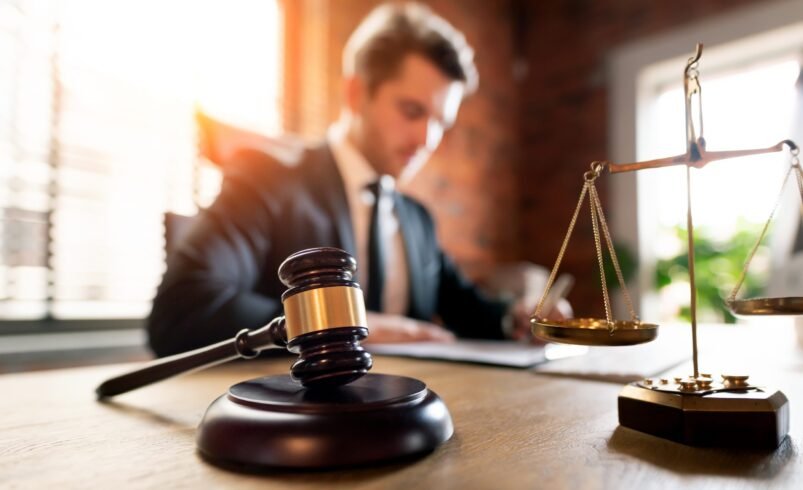How Criminal Defense Lawyers Navigate Complex Laws: A Behind-the-Scenes Look

Criminal defense lawyers play a critical role in the justice system. Their job is to ensure that their clients receive a fair trial, a constitutional right afforded to everyone, no matter the crime they are accused of. Navigating through complex legal frameworks, criminal defense lawyers must balance legal expertise with strategic thinking, critical analysis, and often, high levels of empathy. In this behind-the-scenes look, we’ll explore how criminal defense lawyers tackle their responsibilities and the intricacies of their profession.
Understanding the Legal Framework
The primary challenge for any criminal defense lawyer is to understand the ever-evolving legal landscape. Criminal law is vast and continuously changing, shaped by new laws, court decisions, and societal values. Whether it’s the introduction of new criminal statutes, changes to sentencing guidelines, or shifts in case law, staying up-to-date is crucial for a criminal lawyer.
Every criminal case presents a unique set of circumstances and requires in-depth legal analysis. Lawyers must study case precedents to ensure that they understand how previous cases might influence the current trial. Understanding procedural rules, evidence laws, and sentencing laws forms the foundation of their strategy. Criminal defense lawyers spend countless hours researching, reading legal texts, and engaging with colleagues to ensure their legal arguments are strong and based on the most current and relevant information.
Investigation and Evidence Gathering
One of the most important aspects of a criminal defense lawyer’s job is the thorough investigation they conduct into the case. While prosecutors rely on evidence they collect to build a case against the defendant, a criminal defense lawyer works to uncover evidence that might suggest their client’s innocence, mitigate the severity of the charges, or present an alternative explanation for the events in question.
Lawyers gather all available evidence, interview witnesses, and may even employ private investigators to uncover overlooked details. This phase can be incredibly time-consuming and requires great attention to detail. For example, a criminal defense lawyer might cross-examine police reports, conduct forensic analyses, or scrutinize the actions of law enforcement to identify potential violations of the client’s rights. In some cases, crucial evidence might be suppressed, and it’s up to the criminal defense lawyer to argue why certain pieces should not be admissible in court.
Furthermore, defense lawyers often need to rely on expert testimony, such as forensic specialists or psychologists, to challenge the prosecution’s narrative. Whether it’s a DNA expert proving a sample doesn’t match the accused or a psychologist arguing about the mental state of the defendant, these specialists play a pivotal role in creating doubt in the minds of the jury.
Legal Strategy and Tactics
Once the facts are gathered, the Criminal Lawyer Brampton Ontario works on developing a legal strategy. This involves understanding not just the law but the psychology of the courtroom and the judge or jury they are likely to face. Experienced criminal defense lawyers often use a combination of different tactics to sway a case in their favor.
For instance, if the evidence is overwhelming, a lawyer may decide to pursue a plea bargain, where the defendant agrees to plead guilty in exchange for a lighter sentence. On the other hand, if there’s significant doubt surrounding the prosecution’s case, the lawyer might opt for a trial and employ a defense strategy that casts doubt on the prosecution’s evidence.
Defense strategies can range from arguing that the defendant was wrongfully identified to invoking self-defense or claiming entrapment. Criminal defense lawyers must consider not only the facts but also the emotions and biases of those involved, including the jury, judge, and opposing attorneys.
In some cases, a criminal lawyer might also seek to have charges dropped due to procedural errors. This can occur if there’s been a violation of constitutional rights, such as an unlawful search and seizure or inadequate representation by previous counsel. In these cases, the lawyer argues that the case should not proceed because of fundamental errors that would prejudice the defendant’s right to a fair trial.
Courtroom Presentations
When it’s time for the case to go to trial, criminal defense lawyers take on the responsibility of presenting a compelling argument to the court. This is where their legal acumen, communication skills, and strategic thinking come to the forefront.
A criminal defense lawyer’s job in the courtroom is not only to argue the facts of the case but also to effectively present the law and evidence in a way that makes the defendant’s position clear. This includes delivering opening and closing statements, cross-examining prosecution witnesses, and presenting witnesses and evidence that might strengthen the defense.
The courtroom environment can be high-pressure, with intense scrutiny of every word and action. A skilled criminal lawyer knows how to make the best use of the time they have in front of a jury or judge, often anticipating how the prosecution will respond to certain arguments. Lawyers also need to think on their feet, adapting their arguments and strategies in response to new evidence, unpredictable reactions from witnesses, or unforeseen obstacles in the case.
Emotional and Ethical Considerations
Navigating the emotional landscape of criminal cases is another challenge faced by criminal defense lawyers. Many criminal lawyers handle cases involving violent crimes or individuals facing long prison sentences. While their job is to represent their client to the best of their ability, they must also maintain an ethical stance, ensuring they uphold justice and fairness.
One of the toughest parts of the job is working with clients who may have committed serious crimes. Defense lawyers must be able to separate their personal feelings from their professional duties. This requires a deep understanding of legal ethics, as well as the ability to empathize with their clients’ circumstances. Even if a lawyer personally believes their client is guilty, they are still bound by their duty to provide a robust defense.
The Role of a Criminal Lawyer in the Justice System
Criminal defense lawyers are essential to ensuring that the justice system functions fairly. By upholding constitutional rights and ensuring that all accused individuals are treated justly, criminal lawyers safeguard the integrity of the legal system. Their role is not to prove guilt or innocence directly but to ensure that the process is fair, transparent, and unbiased.
In conclusion, the work of a criminal defense lawyer goes far beyond what the public often sees in courtroom dramas. It requires legal expertise, investigative skill, and ethical decision-making. Whether defending a person wrongly accused or seeking the lightest sentence for a guilty client, criminal defense lawyers play a vital role in maintaining justice and fairness in the legal system.



